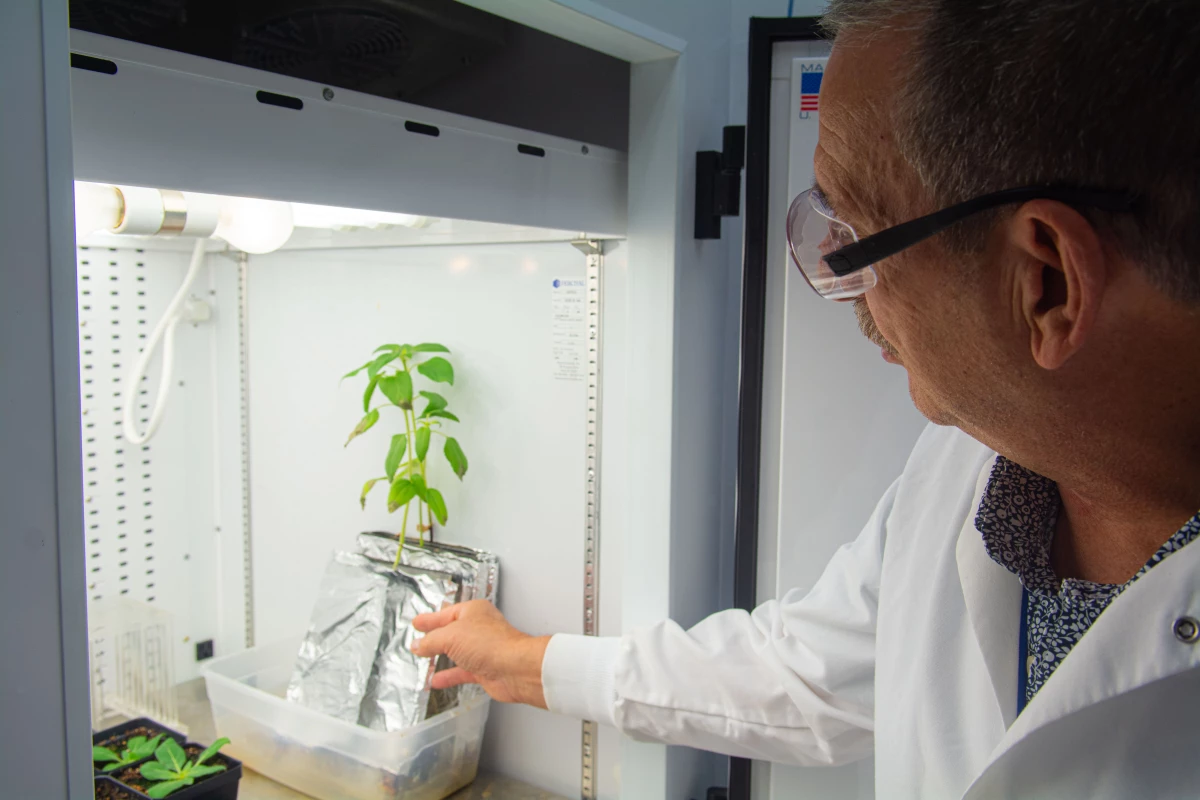It would certainly be logical to think that plants don't do well when exposed to forest fire smoke. New research, however, suggests that certain crops get hardier and more disease-resistant when liquid smoke is added to the soil.
The discovery was made more or less accidentally, when Prof. Richard Ferrieri and colleagues at the University of Missouri were studying the impact of smoke-saturated soil on plant growth.
Once a week throughout the 2022 growing season, the scientists added liquid smoke to the soil in which potted sunflowers were growing. Liquid smoke – which is widely sold as a food additive – is basically just water and condensed smoke particles, obtained from the burning of wood. In the study, it was used to simulate smoke produced by wildfires.
The researchers found that as compared to controls grown in regular soil, sunflowers grown in the carbon-rich smoky soil produced larger, thicker, greener leaves. They also had thicker stems, twice as many flowers, and generally appeared to be more resistant to pests and diseases.
These qualities came about due to the fact that the plants produced a greater amount of a structural biopolymer known as lignin within their cell walls. Doing so made the plants stronger and sturdier … and also less vulnerable.

"Plants that possess higher lignin content are more difficult to chew and digest, as when insects feed on young leaves. Hence these plants can be more resistant to attack by pests," Ferrieri told us. "Also, plants that have a higher lignin content are less prone to infection by microscopic pathogens – the cells are harder to penetrate. Hence these plants are more disease resistant […] By being able to create stronger physical barriers during their growth, plants don't have to expend as much energy defending themselves through energy-taxing biosynthesis of different chemical agents. Thus, in the end, these plants have more resources to dedicate to their reproduction cycle – i.e., making more flowers."
Ferrieri's team is now planning on testing other crop plants, in hopes that liquid smoke could one day offer a more eco-friendly alternative to conventional pesticides. It is believed that soy beans may react much like the sunflowers, as they possess a similar vascular system.
A paper on the research was recently published in the International Journal of Molecular Sciences.
Source: University of Missouri





